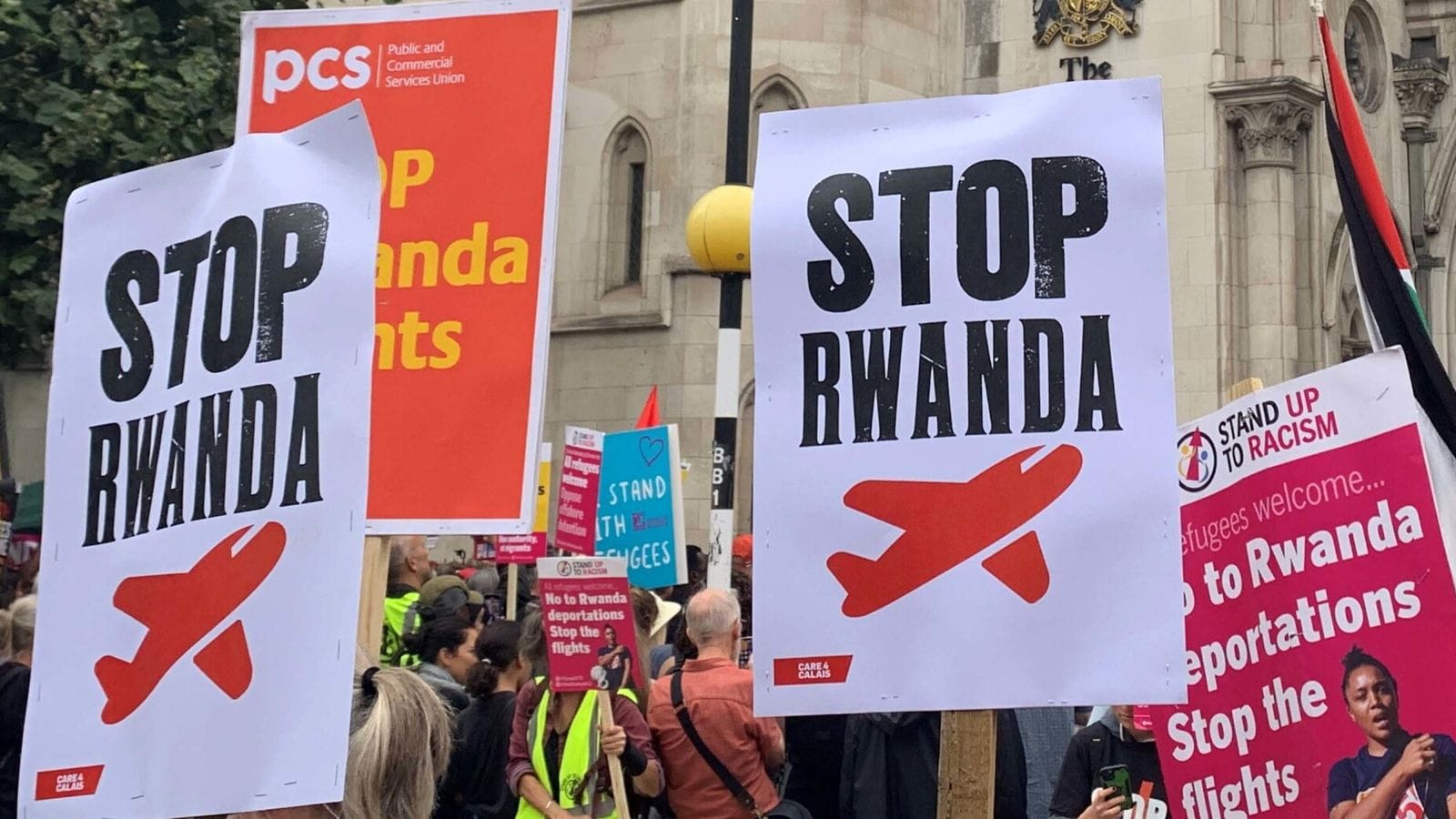Starmer Slams UK’s Rwanda Plan as Germany Mulls Its Own Version Amid Migration Crisis
The Rwanda plan, initiated under Boris Johnson’s government in 2022, aimed to deter illegal immigration by threatening to relocate asylum seekers to Rwanda
In a striking twist to the ongoing debate over immigration policies in Europe, Labour leader Sir Keir Starmer has reiterated his dismissal of the UK's former Rwanda deportation plan as an expensive "gimmick" that wasted taxpayer money, just as Germany explores similar ideas under new European Union migration strategies. Starmer's comments come in response to recent discussions within Germany's government about potentially using facilities in Rwanda—initially set up for the UK’s now-abandoned scheme—to process asylum seekers.
A "Gimmick" with a Costly Price Tag
The Rwanda plan, initiated under Boris Johnson’s Conservative government in 2022, aimed to deter illegal immigration by threatening to relocate asylum seekers to Rwanda for processing. Starmer’s Labour government, which took power in the summer of 2024, quickly scrapped the scheme, citing its high costs—£700 million spent over a year with only four voluntary relocations to Rwanda. Starmer has insisted that the plan was never practical and that the funds could be better spent on operational improvements, such as dismantling criminal gangs facilitating illegal migration across the Channel and accelerating the asylum processing backlog.
Germany's Migration Controversy
Meanwhile, Germany's interest in a Rwanda-style plan has reignited debate across the European Union. Joachim Stamp, Germany's Special Representative for Migration Agreements, proposed that the EU could use the existing asylum facilities in Rwanda to process refugees arriving via the bloc’s eastern borders. This idea comes amid growing pressure on Germany's coalition government to restrict irregular migration, especially after recent incidents, such as a fatal stabbing at a festival, which have fueled far-right criticism of Berlin's immigration policies.
Stamp's proposal differs from the UK's abandoned plan in that it would operate under United Nations supervision, ensuring compliance with international humanitarian law. However, Germany’s ambassador to the UK clarified that while Germany is exploring third-country processing options, it does not intend to adopt a direct replica of the UK's Rwanda scheme. The plan aims to address specific migration flows, particularly from Belarus, rather than applying broadly across all asylum cases, as initially envisioned by the UK.
EU Migration Policy and the Bigger Picture
The German proposal is part of broader European Union efforts to handle asylum and migration more cohesively. The EU recently reached a new agreement on managing irregular arrivals, which is expected to take full effect by the end of 2025. This pact is seen as a significant breakthrough after years of contention among member states over how to distribute the burden of asylum seekers and manage external borders.
Germany's flirtation with the Rwanda model also reflects a pragmatic approach to an escalating crisis that has seen far-right parties gain ground in recent regional elections, particularly the anti-immigration Alternative for Deutschland (AfD). Berlin's cautious stance and Stamp's selective focus on migrants from specific regions, such as Belarus, suggest that any move toward using Rwanda facilities would be carefully circumscribed to avoid the broader backlash that the UK plan encountered.
Political Reactions and Future Implications
Back in the UK, the news of Germany's interest has been met with mixed reactions. Conservative voices have criticized Labour for abandoning what they argue could have been an effective deterrent, with former immigration minister Robert Jenrick describing the situation as “a complete farce.” Conversely, Labour ministers and supporters remain skeptical of the scheme's viability, labeling it an "expensive gimmick" that was bound to fail. Border Security Minister Dame Angela Eagle warned Germany against pursuing a similar path, suggesting that any such plan would encounter the same pitfalls as the UK's abandoned attempt.
As the Labour government pivots towards more pragmatic solutions—focusing on breaking up human trafficking networks and enhancing bilateral agreements for the swift return of unauthorized migrants—Starmer's criticism of the Rwanda plan underscores his broader strategy of presenting Labour as a credible alternative to Conservative immigration policies.
With migration remaining a contentious issue across Europe, the developments in Germany and the EU’s evolving policies may influence the UK's future approach, especially as political leaders across the continent grapple with rising anti-immigration sentiments and humanitarian obligations.






